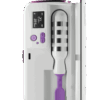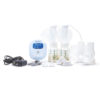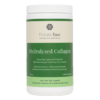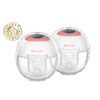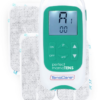The Complete Guide to Choosing Health Canada Approved Prenatal Vitamins
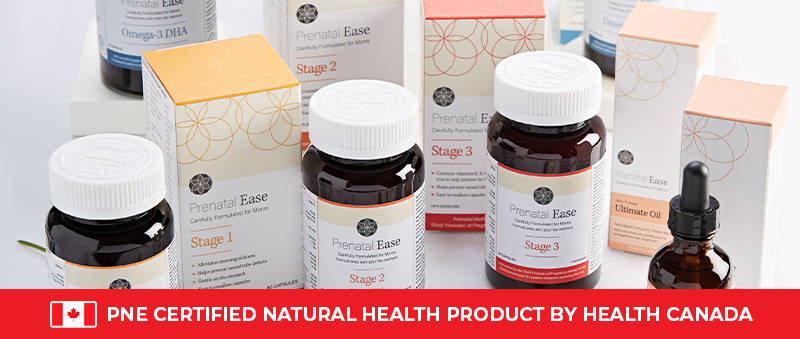
The Complete Guide to Choosing Health Canada Approved Prenatal Vitamins
Why Health Canada Approval Matters for Prenatal Vitamins
When you’re pregnant or planning to conceive, choosing the right prenatal vitamin is one of the most important decisions you’ll make for your baby’s health. In Canada, Health Canada approval ensures that prenatal supplements meet strict safety and efficacy standards—but not all prenatal vitamins are created equal.
This comprehensive guide will help you understand what to look for in Health Canada approved prenatal vitamins and how to choose the best option for your pregnancy journey.
What Makes a Prenatal Vitamin Health Canada Approved?
Health Canada approval represents a rigorous evaluation process that ensures prenatal vitamins meet the highest standards for safety and effectiveness. When a prenatal vitamin receives Health Canada approval, it means the product has undergone extensive testing for safety standards, ensuring no harmful contaminants or unsafe ingredient levels are present. The approval process also verifies quality control measures, guaranteeing consistent potency and purity across every batch produced.
Beyond safety, Health Canada approval confirms that the prenatal vitamin demonstrates proven efficacy through documented nutrient absorption and bioavailability studies. The minimum manufacturing standards must also be met to ensure each bottle meets the same high standards.
- Safety standards: No harmful contaminants or unsafe ingredient levels
- Quality control: Consistent potency and purity across batches
- Efficacy: Proven nutrient absorption and bioavailability
- Manufacturing standards: Must meet strict production protocols
Key Nutrients to Look for in Your Prenatal Vitamin
Understanding which nutrients your prenatal vitamin should contain is essential for making an informed choice. The most critical nutrient to consider is folate, though it’s important to distinguish between different forms. Rather than synthetic folic acid, look for L-methylfolate, which is the active form your body can immediately use. This distinction is particularly important because L-methylfolate supports neural tube development and prevents birth defects more effectively than synthetic alternatives, especially for women with MTHFR gene variations that affect up to 40% of the population.
Iron represents another crucial component, as it prevents anemia during pregnancy and supports the increased blood volume that occurs as your baby grows. However, not all iron forms are created equal. The best prenatal vitamins use gentle, well-absorbed forms of iron that minimize stomach upset and constipation, common side effects that cause many women to discontinue their prenatal vitamins altogether.
Omega-3 fatty acids, particularly DHA and EPA, are critical for your baby’s brain and eye development throughout pregnancy. The most effective prenatal vitamins include triglyceride-form omega-3s, which offer superior absorption compared to cheaper alternatives. Many premium brands keep omega-3s in separate capsules to prevent the fishy aftertaste that can worsen pregnancy nausea. Vitamin D plays a vital role in bone health and immune function, particularly important for Canadian women who may have limited sun exposure during pregnancy. Meanwhile, choline supports crucial brain development processes and is essential throughout pregnancy and breastfeeding.
Essential Nutrients for Pregnancy:
Folate (Not Folic Acid)
- Look for L-methylfolate instead of synthetic folic acid
- Supports neural tube development and prevents birth defects
- Better absorbed by women with MTHFR gene variations (up to 40% of the population)
Iron
- Prevents anemia during pregnancy
- Supports increased blood volume
- Choose gentle, well-absorbed forms to minimize stomach upset
Omega-3 Fatty Acids (DHA/EPA)
- Critical for baby’s brain and eye development
- Look for triglyceride-form omega-3s for better absorption
- Separate fish oil capsules prevent fishy aftertaste
Vitamin D
- Supports bone health and immune function
- Particularly important for Canadian women with limited sun exposure
Choline
- Essential for brain development
- Important throughout pregnancy and breastfeeding
Stage-Specific Prenatal Nutrition: A Smarter Approach
Most prenatal vitamins take a one-size-fits-all approach, but your nutritional needs actually evolve significantly throughout your motherhood journey. During the preconception phase, which ideally begins three months before trying to conceive, your body needs focused support for egg quality and fertility preparation. This stage requires higher folate levels for neural tube development and specific antioxidants that support reproductive health.
The first trimester brings unique challenges, particularly morning sickness and fatigue. The most effective prenatal vitamins for this stage include natural nausea management ingredients like high-purity ginger extract, along with higher B-vitamin content to support energy levels. The formulation should also emphasize gentle, easily absorbed nutrients that won’t aggravate sensitive stomachs.
As you progress into the second and third trimesters, your body’s demands shift toward supporting rapid fetal growth and development. This period requires increased iron to accommodate expanded blood volume and higher calcium levels to support your baby’s bone development. The best prenatal vitamins adjust their formulations to meet these changing needs rather than providing the same nutrient profile throughout pregnancy.
The postpartum period presents its own unique nutritional challenges, as your body works to recover from pregnancy while potentially supporting breastfeeding. This stage requires specific nutrients that replenish what was depleted during pregnancy, support milk production, and aid in recovery processes that many standard prenatal vitamins don’t address.
Preconception (3 months before trying to conceive)
- Focus on egg quality and fertility support
- Higher folate levels for neural tube development
- Antioxidants for reproductive health
First Trimester
- Nausea management with ginger extract
- Higher B-vitamin content for energy
- Gentle, easily absorbed nutrients
Second and Third Trimesters
- Increased iron for blood volume expansion
- Higher calcium for bone development
- Adequate protein support
Postpartum and Breastfeeding
- Nutrient replenishment after pregnancy
- Support for milk production
- Recovery-focused formulation
Red Flags: What to Avoid in Prenatal Vitamins
Understanding what to avoid is just as important as knowing what to look for in a prenatal vitamin. Artificial colors and dyes, including titanium dioxide, serve no nutritional purpose and may cause sensitivity reactions in some women. Similarly, hydrogenated oils and excessive sugar content, particularly common in gummy vitamins, can interfere with nutrient absorption and overall health.
One of the most significant concerns is synthetic folic acid, especially for women with MTHFR gene variations who cannot effectively convert it to the active form their bodies need. Additionally, vitamin A from retinol sources can be toxic in high doses during pregnancy, making beta-carotene the safer alternative for prenatal nutrition.
Quality concerns extend beyond individual ingredients to sourcing and manufacturing practices. Vitamins sourced from commodity brokers often lack proper testing and quality control, while untested ingredients may contain contaminants harmful to both mother and baby. Inconsistent batch quality and missing heavy metal testing represent serious red flags that indicate a manufacturer prioritizes cost over safety.
Avoid These Ingredients:
- Artificial colors and dyes (including titanium dioxide)
- Hydrogenated oils
- Excessive sugar (common in gummy vitamins)
- Synthetic folic acid (if you have MTHFR variations)
- Vitamin A from retinol (choose beta-carotene instead)
Quality Concerns:
- Vitamins from commodity brokers
- Untested ingredients
- Inconsistent batch quality
- Missing heavy metal testing
Prenatal Vitamins vs. Gummy Vitamins: The Truth
While gummy prenatal vitamins have gained popularity due to their palatability, they come with significant nutritional limitations that many expectant mothers don’t realize. Most gummy vitamins contain 2-3 grams of sugar per serving, which can contribute to gestational diabetes risk and dental problems during pregnancy. More concerning is that gummy vitamins typically lack essential nutrients like iron, choline, and adequate folate levels due to manufacturing constraints.
The heat-sensitive nature of many vitamins means they degrade during the gummy manufacturing process, resulting in lower potency than what’s listed on the label. This degradation continues during storage, meaning the vitamin content decreases over time. When you consider that gummy vitamins often provide incomplete nutritional support for the higher cost, traditional capsule or tablet forms offer better value and more comprehensive nutrition.
- High sugar content: Often 2-3g per serving
- Missing nutrients: Typically lack iron, choline, and adequate folate
- Lower potency: Heat-sensitive nutrients degrade during manufacturing
- Incomplete support: Don’t provide full-spectrum pregnancy nutrition
How to Choose the Best Prenatal Vitamin for You
Selecting the right prenatal vitamin requires considering your individual circumstances and health needs. Genetic factors play a significant role, particularly MTHFR gene variations that affect how your body processes folate. If you follow a vegetarian or vegan diet, you’ll need extra attention to B12 and iron levels, as these nutrients are primarily found in animal products.
Digestive sensitivity is another important consideration, especially during pregnancy when nausea and stomach upset are common. Smaller capsules or powder forms may be easier to tolerate than large tablets, and some women find that capsules they can open and sprinkle onto food work better for sensitive stomachs. The stage of your pregnancy also matters, as different trimesters have varying nutrient requirements that ideally should be addressed through stage-specific formulations.
Working with your healthcare provider is essential for making the best choice. They can help you determine if you need additional supplements beyond a basic prenatal vitamin, whether you should be tested for nutrient deficiencies, and if any medications you’re taking might interact with prenatal vitamins. They can also advise on how long you should continue taking prenatal vitamins, as the recommendation often extends through breastfeeding.
Consider Your Specific Needs:
- Genetic factors: MTHFR gene variations affect folate metabolism
- Dietary restrictions: Vegetarian/vegan diets may need extra B12 and iron
- Digestive sensitivity: Choose smaller capsules or powder forms
- Stage of pregnancy: Different trimesters have different nutrient needs
Questions to Ask Your Healthcare Provider:
- Do I need additional supplements beyond a prenatal vitamin?
- Should I be tested for nutrient deficiencies?
- Are there any medications that interact with prenatal vitamins?
- How long should I take prenatal vitamins?
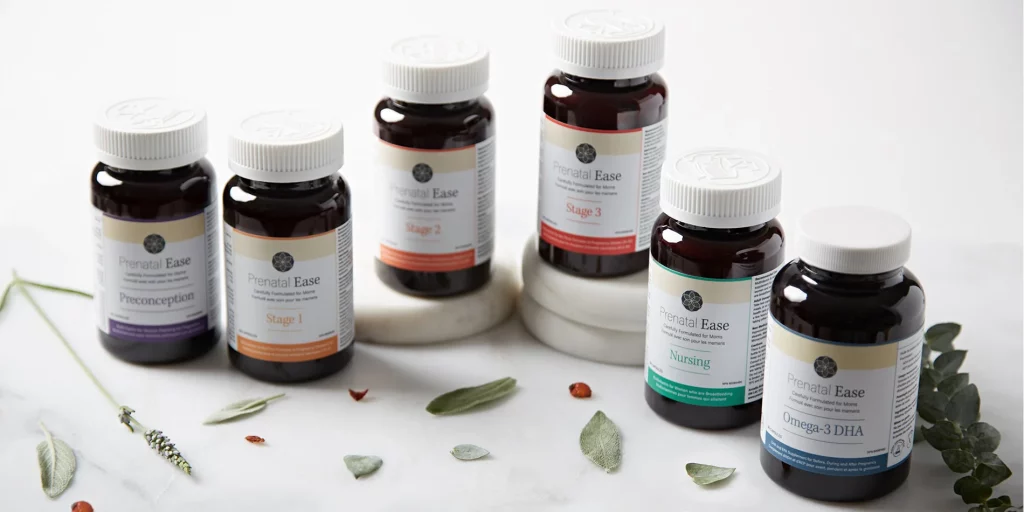
The Prenatal Ease Advantage: Science-Backed Quality
At Mother’s Choice Products, our Prenatal Ease line represents a different approach to prenatal nutrition, one that recognizes the evolving needs of women throughout their motherhood journey. Rather than offering a single prenatal vitamin for all stages, we’ve developed stage-specific formulations tailored to preconception, pregnancy, and postpartum needs.
Our commitment to premium ingredients means every Prenatal Ease formula contains L-methylfolate instead of synthetic folic acid, ensuring optimal folate status regardless of genetic variations. We use triglyceride-form omega-3s for maximum absorption and bisglycinate iron for gentle effectiveness without the digestive upset common with cheaper iron forms. The beta-carotene in our formulations provides safe vitamin A support without the toxicity risks associated with retinol.
Quality control extends beyond ingredient selection to rigorous testing protocols. Every batch undergoes comprehensive testing for heavy metals, pesticides, and contaminants at GMP certified – Good manufacturing processes with full audit trails. We maintain strict standards that often exceed industry norms, sometimes choosing to go temporarily out of stock rather than compromise on quality.
The thoughtful design of our capsules makes them easier to take during pregnancy. Our smaller capsules are easy to swallow and can be opened and sprinkled onto food if needed. We keep omega-3s in separate softgels to prevent the fishy aftertaste that can worsen pregnancy nausea, and our balanced formulations can minimize common side effects like constipation.
- Stage-specific formulations tailored to preconception, pregnancy, and postpartum needs
- Premium ingredients including L-methylfolate, triglyceride-form omega-3s, and beta-carotene
- Rigorous testing for heavy metals, pesticides, and contaminants
- GMP-certified facilities with full audit trails
- Gentle, effective format with smaller capsules and separate omega-3s
Making the Right Choice for Your Pregnancy Journey
Choosing a Health Canada approved prenatal vitamin is just the first step. The best prenatal vitamin for you should provide stage-appropriate nutrition, use bioavailable ingredients, and be manufactured to the highest quality standards.
Remember, prenatal nutrition isn’t one-size-fits-all. Your needs evolve from preconception through postpartum, and your prenatal vitamin should evolve with you.
Ready to find the perfect prenatal vitamin for your pregnancy journey? Explore our Health Canada approved Prenatal Ease collection, designed specifically for Canadian moms who want the best for their babies.






